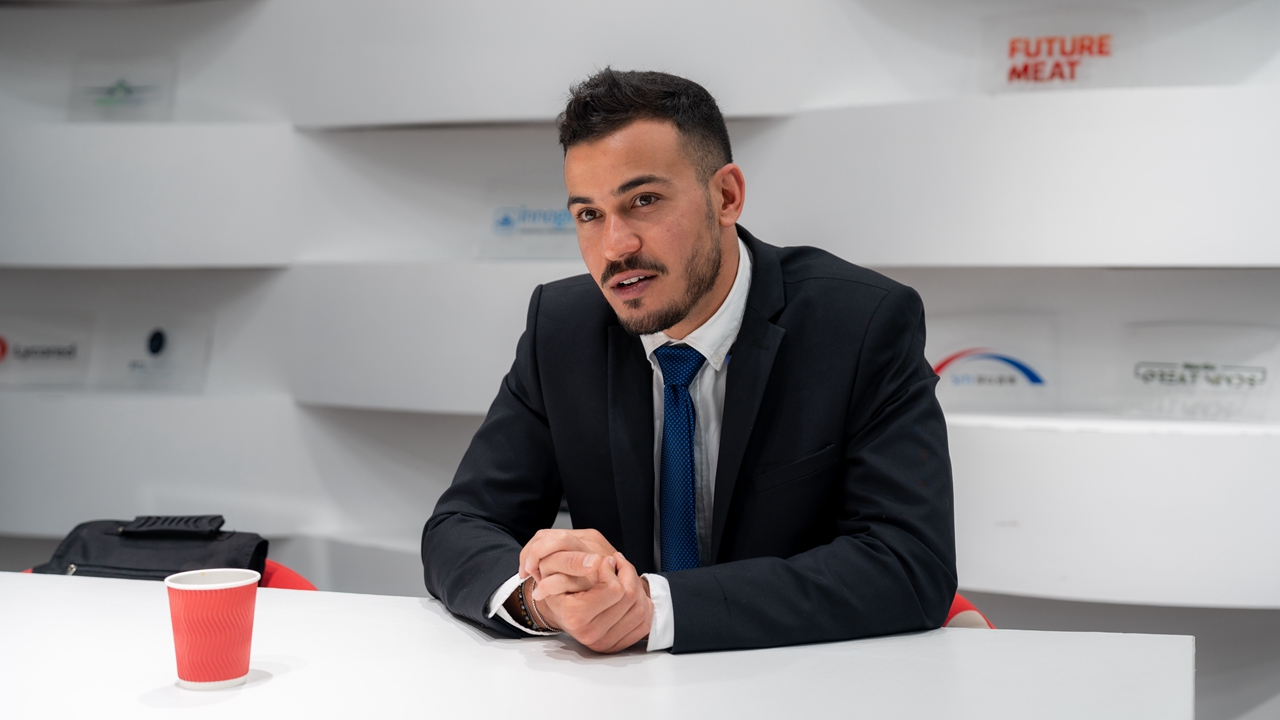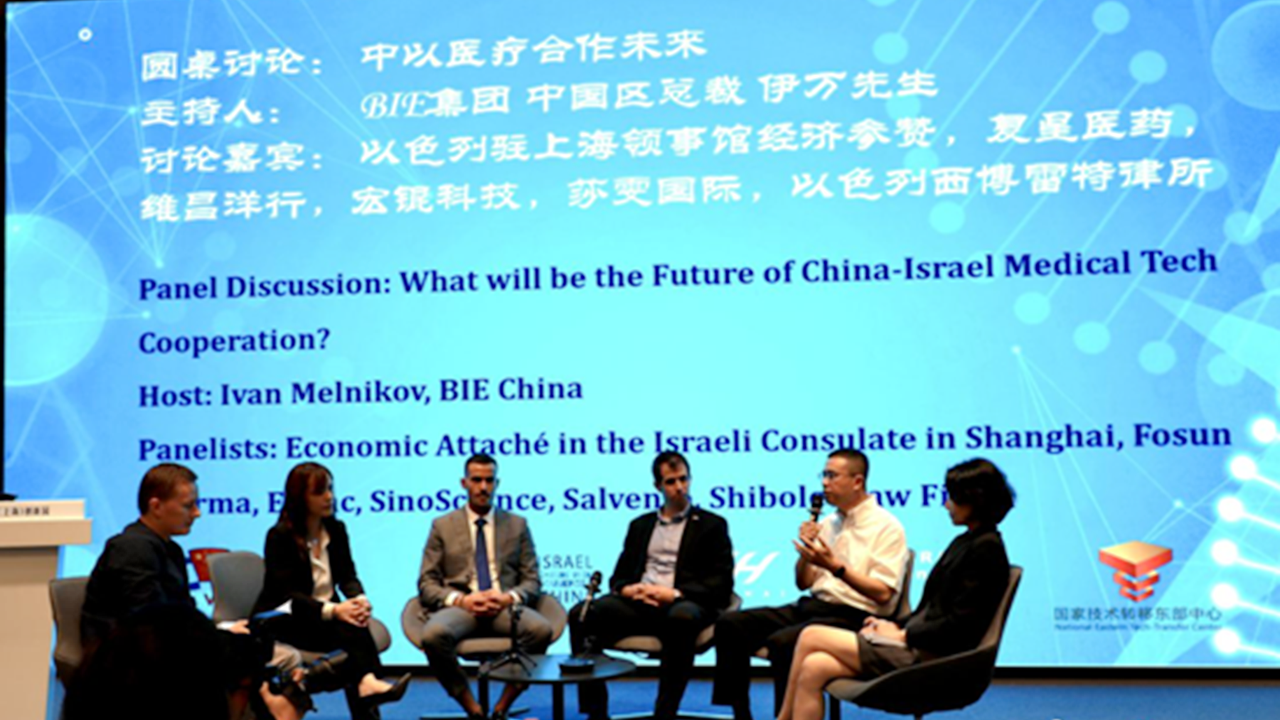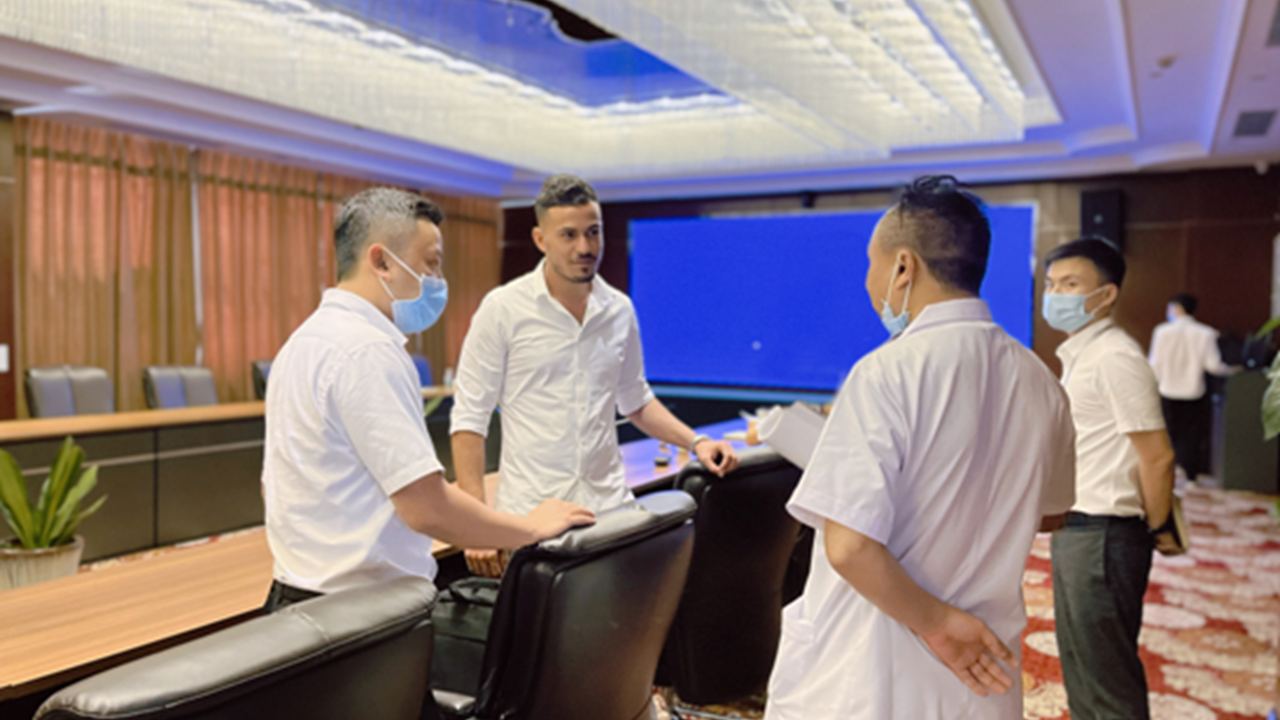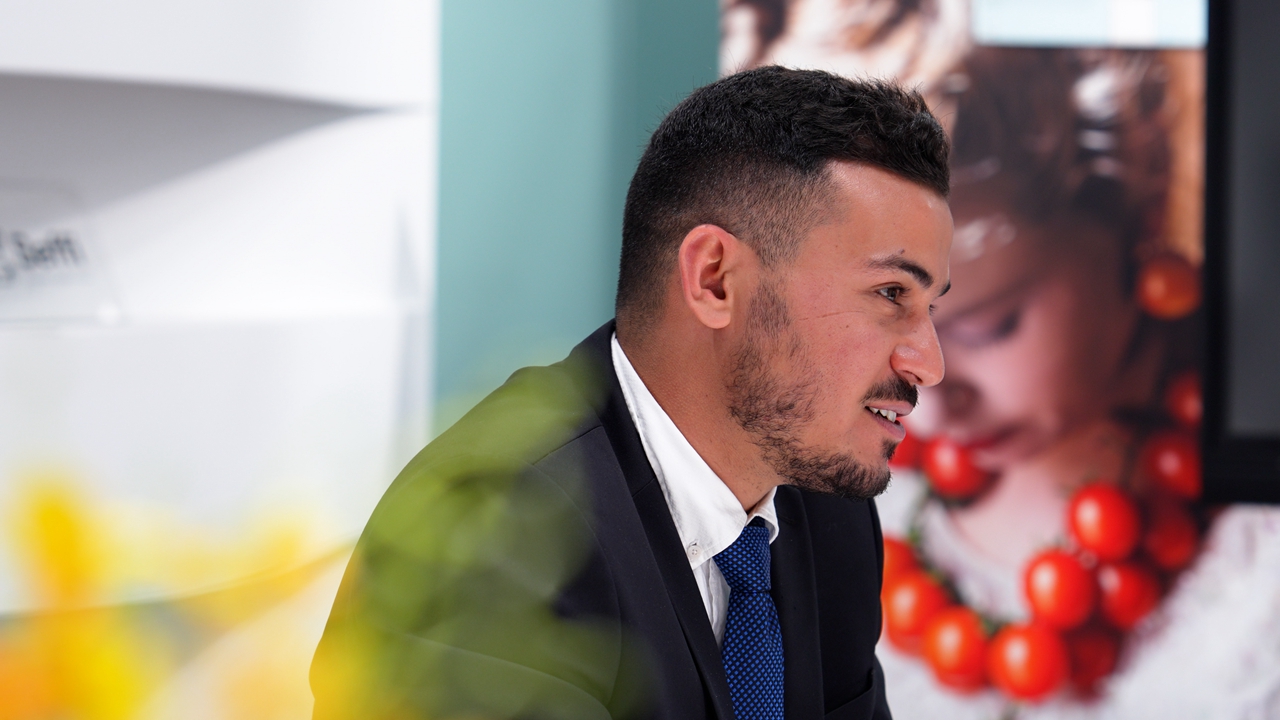Israeli brings more cutting-edge treatments to China
Writer: Chen Xiaochun | Editor: Zhang Chanwen | From: Shenzhen Daily | Updated: 2023-03-13
A+ A- Print
Video and photos by Lin Jianping, except otherwise stated.
Trotting to different places to attend business meetings across China has become a lifestyle for Israeli Segev Halfon. The entrepreneur has been dedicated himself to bringing more cutting-edge treatments to China and improving the living quality of people for the last five years.

Segev Halfon has an exclusive interview with Shenzhen Daily at Shenzhen Israel Innovation Hub on Monday. Lin Jianping
Like many other foreigners, Halfon saw China as a mysterious place before he decided to explore the country five years ago. He landed in Shenzhen, his first destination in China, and was impressed by the development of the former small fishing village.
“I remembered stories about how the fishermen town has become the Silicon Valley of China. Nowadays, the investments from all around China come here. I saw with my own eyes how developed it was, how the government supported the private sector, and how the private sector really made things not just for export, but also for research and development,” said Halfon, co-founder and CEO of SinoSciences Global.
Shift to medical field
During his first trip to Shenzhen, Halfon was curious about the country’s economy and decided to visit some pharmacies and hospitals in the city to gain insight from a professional standpoint. “I inquired about certain treatments available in Israel that were not yet accessible in China while visiting the pharmacies and hospitals,” he recalled.

Halfon poses for a photo at Shenzhen Israel Innovation Hub on Monday.
During his foray into the medical field, Halfon observed a great potential in bringing cutting-edge medical devices and treatments to China. Despite having a background in computer science, he chose to venture into the medical industry after gaining exposure to it.

Halfon (3rd L) attends a conference on China-Israel Medical Tech Cooperation in Shanghai in 2021. Courtesy of the interviewee
In 2018, he established SinoSciences Global with his partners in Singapore and one year later they set up an office in Shenzhen. The company specializes in the distribution of breakthrough medical devices throughout Asia. It imports state-of-the-art medical devices primarily from Israel, but also from Europe and the U.S.

Halfon introduces their medical devices to the Boao International Hospital in Hainan in 2022. Courtesy of the interviewee
“Israel is particularly strong in the medical industry. Medical devices have become a fascinating topic worldwide, especially in recent years, as healthcare has become increasingly critical for people, especially for patients. Thus, a few years ago, we decided to shift to the medical sector. So far we have many successful cases with our breakthrough medical device portfolio that have been used to treat Chinese patients and the results are wonderful,” he explained.
According to Halfon, Shenzhen, at the core of the Guangdong-Hong Kong-Macao Greater Bay Area, is a vital player in China’s economy.

A view of Shenzhen.
“This is precisely why we decided to make Shenzhen our home and our base of operations. From here, we can manage our device portfolio that will cater to the mainland market. Moreover, Shenzhen’s culture is relatively similar to that of foreign countries, making it a soft landing for us. Although Shenzhen is primarily an export-oriented city, we also recognized its potential for domestic activities, and that is precisely what we are currently engaged in,” Halfon remarked.
Over the past few years, Halfon and his team learned that the policies the Chinese Government provides actually aims to promote a certain market, citing the “Hong Kong and Macao Medicine and Equipment Connect” policy as an example.
Halfon explained that the policy allows certain overseas medicines and medial devices to be made available at several hospitals in Shenzhen and Guangzhou through Hong Kong. “So actually, this policy provides a soft landing. It supports overseas companies, such as U.S., European and Israeli companies to launch a medical product or device in Hong Kong and then to the Chinese mainland.”

Halfon talks to a reporter with Shenzhen Daily.
Apart from introducing medical devices, the company also provides professional medical training to doctors in China. “We cooperate with the Sheba Medical Center, a government hospital based in Israel and one of the top and leading hospitals in the world. Together, we are focusing on one principle: how to improve treatment success rate for Chinese mainland patients,” he said.
Impressed by China’s achievements
After being exposed to diverse cultures and individuals from around the world, Halfon expressed his profound admiration for what China, particularly Shenzhen, has accomplished.
After living in China for several years, Halfon is deeply impressed by the Chinese government’s prioritization of public health. “I am from the medical industry, and I saw how the government really protects the health and provides hope to its people,” he said.
“We will work together with the Chinese Government and companies to achieve greater success in China, to make more unique treatments accessible to more and more patients across China, and to facilitate professional knowledge sharing to help Chinese doctors increase their treatment success rates. Our hope is for Shenzhen to become the birthplace of our breakthrough achievements on the mainland. As our operational headquarters in China, Shenzhen serves as a model for success in the country,” Halfon explained.

Halfon shares his experiences with Shenzhen Daily.
For the next stage, Halfon and his partners aim to build their own factory in China to produce their device portfolio, catering to the Chinese market first and the overseas market later on.